Hello everyone and happy 2017! We begin the year with a look at our 2016 top albums list. The dizzying variety includes Swedish psychedelic band Goat, jazz guitarist David Hunter, Americana genius from Farewell Milwaukee and Alejandro Escovedo, swampy rock n' roll from Jimbo Mathus, country icon Willie Nelson, Minnesota songwriting icon Mark Mallman, a troubled, creative offering from Wilco, and David Bowie's swan song. Thanks for listening!
|
by Erik Ritland Mark Mallman is nothing less than a Minnesota music icon. An artist of significant depth, there is always something more to his smart, catchy, piano driven pop/rock. In March of 2016 he released perhaps his finest work, The End is Not the End. More than just a songwriter, Mallman is also an intelligent and intellectual thinker. Although centered on his new album, our interview turned into a discussion of life, death, philosophy, time, and how he moved forward from a dark period in his life. The End is Not the End is a varied album. There are laid back, well-crafted pop songs (“H.R.H.,” “Let it Shine,” and “Hologram Jesus”), dancier, more synth heavy songs (“Parasite Eyes,” “Terrified,” and “Monster Movies”) and then some pretty much directly in between (“The End is Not the End,” “Trying to Fight Fire with a Fist,” “Soul Pressure”). How did the different types of songs on the album come about? I set out from the very beginning to make an album where I wrote the music before writing the lyrics. I had very specific poems and lines I needed to incorporate, a theme, and a tone. From seeing the process of the films I've been involved in, this album was much like making a movie. Epic intentions with a methodical, scripted rule book to follow. “This whole album is about accepting loss, not like a break up in any way, but this notion of death. I do not believe in death. A break up is more of a death and a death is more like a break up. Death is something that happens in this portion of reality. Time is flat, so, it's more of a notion that we've been conditioned to believe is real. There is no real.” One of the strongest songs on The End is “H.R.H.,” which started out as a weightier track called "Lessons" (released on a limited edition box set in 2016). “H.R.H.” is more subtle and balances light and dark in a welcoming way. For example, a line like “the first cigarette is the best that it gets/the rest you’ll forget/so you might as well quit” feels aggressive in “Lessons,” whereas in “H.R.H.” it feels like cool, good-natured advice. How did that song evolve? “H.R.H.” is about a king and a queen who got split momentarily. “Lessons” was a mean spirited song toward one of the most horrible people I've ever encountered in my life, who I also had the misfortune of dating. I didn't feel she deserved a song on a record. Instead, I reworked the lyrics into something positive. “H.R.H.” is a book written by Danielle Steele. This whole album is about accepting loss, not like a break up in any way, but this notion of death. I do not believe in death. A break up is more of a death and a death is more like a break up. Death is something that happens in this portion of reality. Time is flat, so, it's more of a notion that we've been conditioned to believe is real. There is no real. Were any of the songs a particular turning point in your writing/the writing for the album? There are about 30 complete songs for this album. They are fully recorded and mixed. I haven't been afflicted with the “magic” of songwriting since I was a beginner. Songwriting is a skill, so the turning point was when I said to myself “I want these songs to create magic for the listener.” That involves focus and intent. The magic being, if one gives full focus and intent to the songs front to back, the will feel empowered against silly notions of death, time, and reality. A lyric in “Hologram Jesus” is “ain’t gonna tuck in my shirt/just so I can get stuck in the paperwork/of trying to buy my fantasy/why pay for what you can get for free?” This seems like a subtle, creative critique of the contemporary music industry and the difficulty of trying to make a living as a songwriter. It's taxing to follow one's dreams. There is no guaranteed amount of fame or money that comes with writing a song. There's also no guarantee that anyone will hear it. Someday I will make a decent living off this stuff, but right now the money is complete bullshit. Some people try to buy their way into art. You can buy art, but you can't buy being an artist, that takes risk and sacrifice. "If one gives full focus and intent to the songs front to back, the will feel empowered against silly notions of death, time, and reality." Talk about some of the personal experiences behind the songwriting on The End is Not the End. I had a complete breakdown, it was only partially my cause. My breakdown was aided by living amid the toxic energy of drug dealers, prostitutes, and gangs of the Sex World district of Minneapolis. It was also aided by vampiric social climbers. My epiphany has been that we can have any sort of reality we choose, and to a great degree, we can change feelings on the inside by changing forces on the outside. For instance, I used to sleep with a giant painting of Cthulhu over my bed. Maybe someday I'll be in a place where I can sleep under Cthulhu and not be frightened. But now, I surround myself only with people who lift me up, friends who introduce me as Mark not Mark Mallman. And I listened to happy music, and I work out, and I eat natural healthy foods. I don't drink alcohol or caffeine, and sweets are very rare. I go to Yoga. I've eliminated the negativity around me, and in turn, the negativity in my head. Talk a little bit about what inspired the dancier, more industrial songs on the album, “Parasite Eyes,” “Terrified,” and “Monster Movies.” DJ Jake Rudh gets all the credit for that. During the period of my life you are referring to, after my mother's crossing over, there were two places of refuge for me. One was the gym, and the other was dancing at Jake's Transmission night. Dancing opens the soul. I would be out on the dance floor thinking, “I'm going to make music that could be played on a night like this.” So yeah, what we ended up with was not a hip-hop album. It's been said that it's the greatest rock record of 2016, but my intent was retro roots. "The End is Not the End" is a profoundly spiritual song, in a way that is both concrete and abstract but also personal. It’s powerful, in the way the best hymns can be. What message were you trying to get across with it? The message is, don't believe the stories, there is no end to ours. If you think about it, the history of all stories is beginning, middle, and ending. Life is not that. Life is only middle. It is always middle, because as I said, time is flat. “The End is Not The End” is a badass rock song that could easily fit onto a Who record, but the lyrics around about letting go. To let go of the notion of end, is to free yourself from time, and therefore become more deeply connected with the moment. As in “Mindfulness.” “I surround myself only with people who lift me up, friends who introduce me as Mark not Mark Mallman. And I listened to happy music, and I work out, and I eat natural healthy foods. I don't drink alcohol or caffeine, and sweets are very rare. I go to Yoga. I've eliminated the negativity around me, and in turn, the negativity in my head.” Throughout your albums you’ve made references to the Christian tradition in a creative, tasteful way. The End feels like your most spiritual album in that it deals with deep themes that go deep inside you, and your mind, in a metaphysical way. There are also some biblical allusions (“the truth will set you free” in “Trying to Fight Fire with a Fist"; “never fall asleep when you’re supposed to be praying” in “H.R.H."; the “David and Goliath” line in “Soul Pressure”). How would you describe the spiritual elements of The End is not the End and in your music in general? It's Bob Dylan that did that to me. When I was about 14 I read Songwriters on Songwriting many times, and I believe it is in there where Dylan talks about Christianity as the only modern mythology we can all agree on. If I were to start singing about wormholes, vortices, or spectre lights, I feel it would pull away from the genre of music I write. Though I very well might start going in that direction in the future. I was raised Christian, and I think all religions are beautiful. My songs are about the human experience in the 21st century, religion is a huge part of that. There's a lot of denial going on in contemporary art about spirituality because it doesn't help sell music. That's money minded bullshit, and it pulls us from the path. Then again, money is a religion too, I suppose. “Hole in the Night" is a beautiful song, packed with emotion and meaning, yet is also catchy and accessible. “Hole in The Night” is a true story of a dream where my mother and I had a very heartfelt conversation about the other side. We were in a grocery store. I was crying. I said “I want to see you, but you are dead.” and she laughed, “I am not dead, I'm right here with you in your dreams, any time you'd like to you can see me.” It's where I really came to grips with knowing. I know in conversation one might say that the end is not the end. But in our hearts, at the core of our essence, we must do more than believe. It is crucial that we know it, that we know it to be true. This is the nature of all faith. “I was raised Christian, and I think all religions are beautiful. My songs are about the human experience in the 21st century, religion is a huge part of that. There's a lot of denial going on in contemporary art about spirituality because it doesn't help sell music. That's money minded bullshit, and it pulls us from the path. Then again, money is a religion too, I suppose.” The lyrics of album closing "Soul Pressure" are some of the best on the album: “’cuz David faced Goliath/with his sling and stone to win/because they laughed the brothers Wright/they laughed when Dylan plugged it in/it wasn’t funny but they laughed/they just kept laughing anyway/but he kept rocking without stopping/now who’s the one laughing today?” Quite powerful.
From its very inception the intent was to close the record with “Soul Pressure.” I started writing Soul Pressure in 2011, when I first felt it. When I talk about Soul Pressure I'm talking about anything that puts negativity on one’s experience. It's a song of personal exorcism, like in a movie where a person says “I'm mad as hell and I'm not going to take it anymore” only my version is “I'm powerful in my heart with joy but I'm not going to take this anymore.” Erik Ritland is a writer and musician from St. Paul, Minnesota. His blog and podcast Rambling On features commentary on music, sports, culture, and more. He was also Lead Staff Writer for Minnesota culture blog Curious North. Support Erik's music via his Patreon account, reach him via email, or find him on Facebook and Twitter. |
AuthorErik Ritland is a writer and musician from St. Paul, Minnesota. His blog and podcast Rambling On features commentary on music, sports, culture, and more. He was also Lead Staff Writer for Minnesota culture blog Curious North. Support Erik's music via his Patreon account, reach him via email, or find him on Facebook and Twitter. Archives
February 2017
Categories |
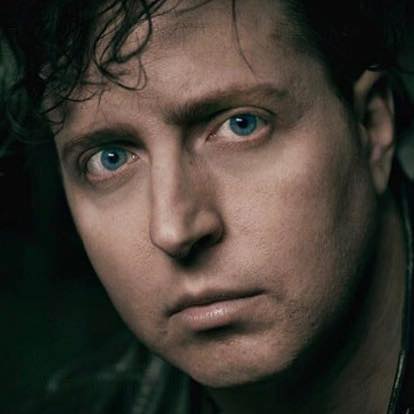
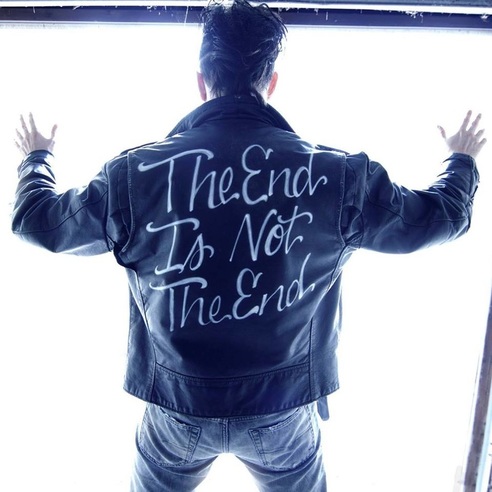
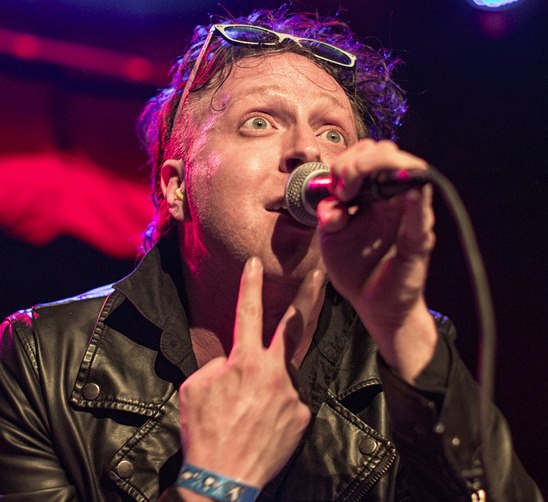
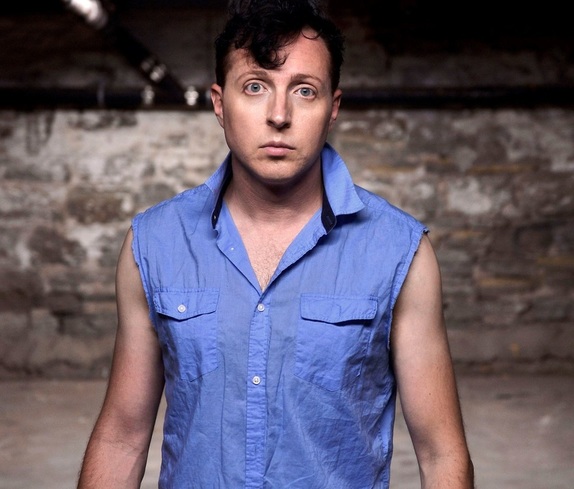
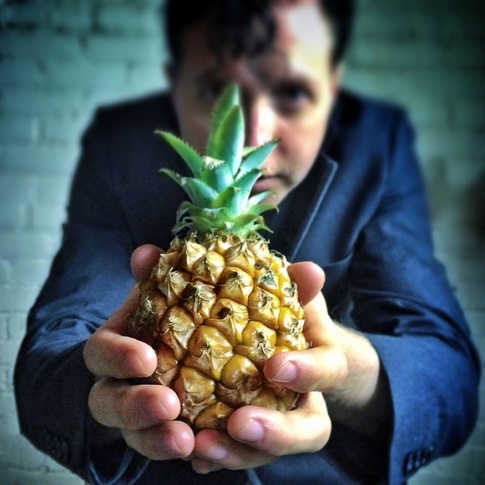
 RSS Feed
RSS Feed
